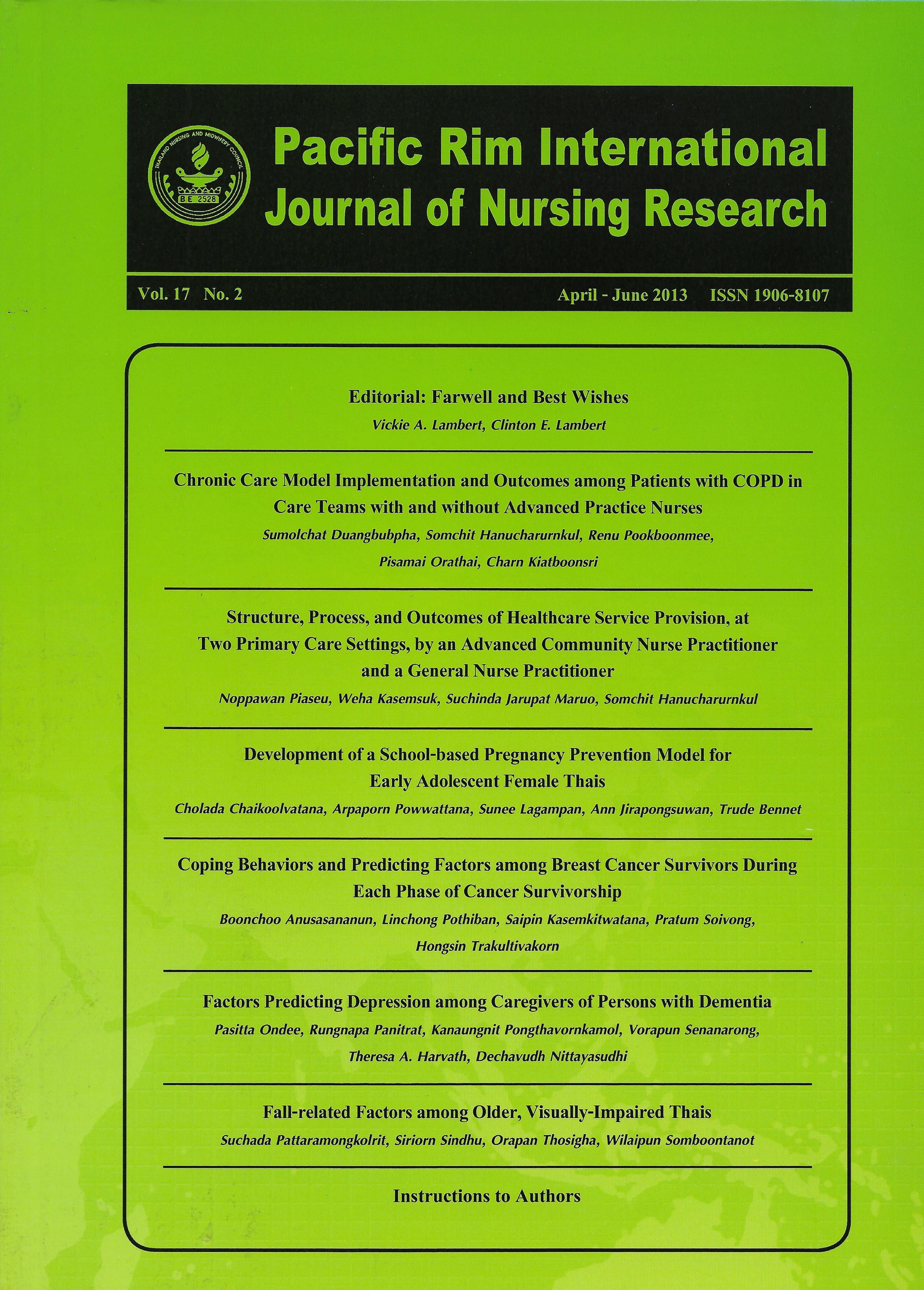Coping Behaviors and Predicting Factors among Breast Cancer Survivors During Each Phase of Cancer Survivorship
Keywords:
Breast cancer survivors, Coping behaviors, Hope, Social support, Uncertainty in illnessAbstract
Abstract : This cross-sectional predictive study aimed to: identify types of coping behaviors adopted by Thai breast cancer survivors during each phase of survivorship; examine the relationships among selected factors (uncertainty in illness, perceived health status, hope, sense of coherence, and perceived social support) and three types of coping behaviors (positive problem solving, escape/avoidance, and seeking social support); and, examine the predicting powers of the selected factors on each type of coping behavior. The sample included 360 Thai breast cancer survivors in the acute, extended, and permanent survival phases who were receiving care at one of three hospitals used as study sites. Data were collected via eight questionnaires and analyzed through use of descriptive statistics, one-way analysis of variance, Pearson’s product moment correlation coefficient, and multiple regression analysis.
The findings revealed, during each phase of survivorship, that positive problem solving was the most frequently adopted coping behavior, followed by seeking social support, and escape/avoidance, respectively. In addition, similar predictors of each type of coping behavior were found in each phase of survivorship. Hope was the only predictor of the coping behavior, positive problem solving, in the acute and extended phases of survivorship, while hope and perceived health status predicted positive problem solving in the permanent phase of survivorship. In addition, uncertainty in illness and sense of coherence predicted the coping behavior, escape/avoidance, in the acute and permanent phases of survivorship, while uncertainty in illness, sense of coherence, and perceived health status predicted this type of coping in the extended phase of survivorship. However, uncertainty in illness and perceived social support predicted the coping behavior, seeking social support, during all three phases of survivorship. The findings suggest that adaptive coping behaviors of Thai breast cancer survivors can be promoted via appropriate intervention with particular predictors.
Downloads
Published
How to Cite
Issue
Section
License
Copyright: The Pacific Rim International Journal of Nursing Research, Thailand Nursing & Midwifery Council has exclusive rights to publish, reproduce and distribute the manuscript and all contents therein.








.png)



